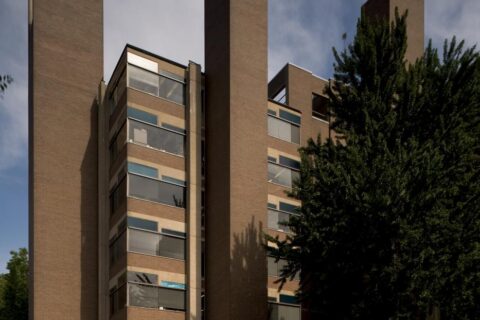Navigating Condo Renovations in Philadelphia: What You Can and Cannot Do
Renovating a condominium in Philadelphia can significantly enhance your living space, boost property value, and personalize your home. However, unlike single-family homes, condos come with a unique set of rules and regulations that govern what you can and cannot do. This blog post delves into these specifics, ensuring your condo renovation project in Philadelphia goes smoothly.
Understanding Condo Rules and Regulations
Before beginning any renovation, it’s crucial to familiarize yourself with the condo association’s rules. These rules, often outlined in the condo’s Covenants, Conditions, and Restrictions (CC&Rs), dictate what changes you can make to your unit. Understanding these guidelines ensures you comply with community standards and avoid potential fines or conflicts.
Structural Changes
- Allowed: Cosmetic upgrades such as interior painting, new flooring, and kitchen or bathroom remodels (within certain limits). Philadelphia’s historic buildings may also require specific materials or techniques for interior upgrades.
- Not Allowed: Major structural changes that affect the building’s integrity, such as moving load-bearing walls or altering plumbing and electrical systems without prior approval. Philadelphia’s building codes and historic preservation requirements may also limit certain modifications.
Exterior Modifications
- Allowed: Minor alterations like replacing windows and adding planters or personal decor to balconies. In Philadelphia, replacing windows in a registered historic building often requires matching the original style. Check with the Philadelphia Historic Commission for more information.
- Not Allowed: Changes that affect the exterior look of the building, like changing balcony railings, installing satellite dishes without permission, or altering the roof structure. This is especially stringent in historic districts like Old City.
Common Areas
- Allowed: Personalized doormats or small decorative items right outside of your unit.
- Not Allowed: Any modifications or renovations in shared spaces, such as hallways, lobbies, or recreational areas, without unanimous consent from the condo association.

Noise & Work Hours
- Allowed: Noise from renovation work is permitted beginning at 7 a.m. Monday through Friday and 8 a.m. on weekends and holidays within the city.
- Not Allowed: Loud construction work during off-hours, including early mornings, late evenings, Sundays, and holidays.

Approval from the Condo Board
Gaining approval from your condo board is a crucial step before any renovation. The process typically involves:
- Submitting Plans: Detailed renovation plans, including scope of work, timelines, and contractor information.
- Review and Feedback: The board reviews the plans, providing feedback or requesting adjustments.
- Approval: Once approved, you can proceed with your renovation, adhering to any conditions set by the board.
Failing to obtain proper approval can lead to halted projects, fines, or mandatory restoration to the original condition at your expense.
Hiring Licensed & Insured Contractors
To ensure quality work and protect yourself from liability, you should research contractors and ensure they are licensed and insured before hiring them.
Vetting Your Contractors:
- Check Credentials: Verify licenses and insurance.
- Read Reviews: Look at past customer experiences.
- Get Multiple Quotes: Compare pricing and scope to ensure you’re getting a fair deal.
Real-Life Condo Renovation in Philadelphia
A Successful Remodel
As a condo owner in Philadelphia, I’ve had firsthand experience with the challenges and rewards of condo renovations. During the replacement of a two-story exterior wall due to leaking stucco and water damage to the lumber, I decided to convert my loft space into a 4-wall bedroom. This included some cosmetic changes such as a new closet. It involved structural modifications, as the existing wall had to be replaced anyhow due to water damage and improperly installed windows and flashing. My contractor submitted detailed plans to the condo board outlining the proposed window modifications. I received approval from the condo board, and the same licensed contractor completed the interior renovation. The result was a new bedroom with a closet that complied with all condo regulations and enhanced my living space.
Conclusion
Renovating a condo in Philadelphia requires a careful balance of creativity, adherence to rules, and thorough planning. By understanding what you can and cannot do, obtaining necessary approvals, and hiring reputable contractors, you can ensure a successful renovation process that enhances your living space and adds value to your property.
If you’re considering a condo renovation and need expert guidance, PhillyLiving Management Group is here to help. Our experienced team can assist you in navigating condo regulations, securing necessary approvals, and finding reputable contractors to bring your vision to life. Contact us today to start your renovation journey with confidence.
About the Author
George Wells is a marketing professional and condo owner in Philadelphia with over 9 years of experience in property management and renovations. His expertise in navigating the complexities of condo regulations and his passion for creating beautiful living spaces have helped several condo owners successfully complete their renovation projects. George holds certification in Board Leadership from Community Associations Institute and is an MBA candidate at Saint Joseph’s University in Philadelphia, PA. https://www.linkedin.com/in/george-e-wells-jr/



